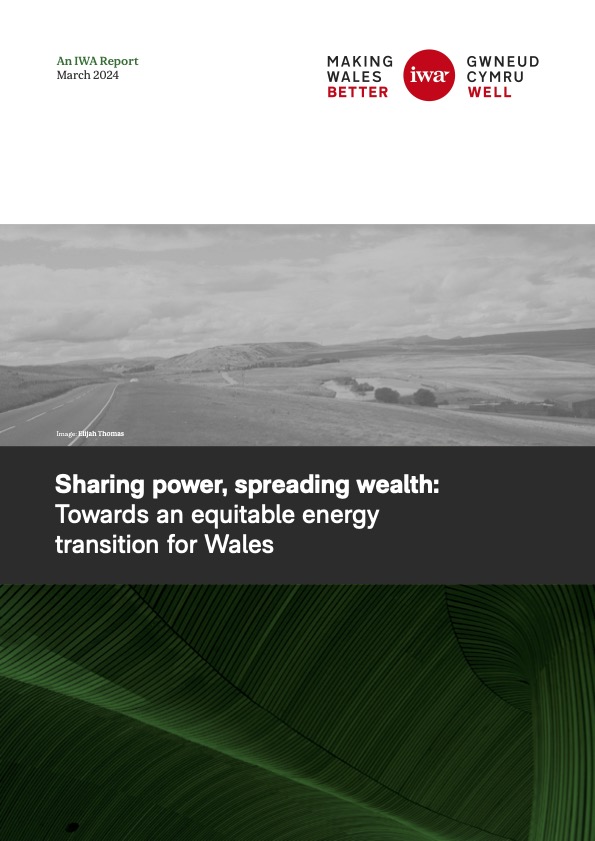
The Welsh Government must set terms of engagement with the commercial renewable energy sector, ensuring Wales retains greater income from the renewable energy developments it hosts.
In our new report written by Lydia Godden, Sharing power, spreading wealth, we make recommendations to ensure that Welsh communities benefit from the transition to Net Zero. Despite ambitious targets, a lack of strategic dialogue and policy guidance currently allows wealth to leak out of Wales. Our research explores how to avoid repeating past mistakes and patterns of resource extraction from occurring again, in order to secure tangible social and economic outcomes for Wales’ communities.
Across the whole of Wales, communities that host renewable energy projects must not only retain income from commercial developments but play a meaningful part in owning local renewable energy projects to ensure long term benefits are retained.

Recommendations
Recommendation 1: Re-powering communities: reforming community benefit funding. In order to retain greater economic impact and income from renewable energy projects within Welsh communities, the Welsh Government should outline clear policy and good practice guidance for the provision of CBFs from renewable energy projects to support both developers and communities in achieving greater economic impact of CBFs.
‘We must ensure that the race to meet net zero does not lead to an extractive green economy, that delivers little for local communities and mirrors the mistakes of previous industrial revolutions in Wales.’ Lydia Godden
Recommendation 2: Establish best practice through Trydan Gwyrdd Cymru, ensuring a minimum of 30% of community ownership on their future developments to maximise retaining income and increased economic impact for communities. As The Welsh Government formalise the role of Trydan Gwyrdd Cymru they should explore the possibility of community ownership where possible. Where projects may be a private/public partnership, jointly developed with a commercial developer the Welsh Government must ensure the developer provides best practice CBFs.
Recommendation 3: Accelerate community ownership on commercial projects, by compelling all new commercial renewable projects above 5MW to have a minimum level of 15% of community and local ownership by 2028. The Welsh Government should learn from the Danish Government’s example and establish policy to retain the benefits in Wales and ensure communities have a stake within local energy generation. The Welsh Government should work with developers to explore and offer a range of community-ownership models, reducing upfront financial barriers that may currently limit economically disadvantaged communities from community ownership.
Recommendation 4: Re-investment for future generations. The Welsh Government should establish a Wales Wealth Fund, reinvesting income from renewable energy projects for the long-term benefits of future generations. The fund would capture ‘sovereign wealth fund Payments’ of at least 15% of net revenues made from future large scale onshore and offshore wind projects with an installed capacity over 50 MW in Wales, alongside a CBF for the local community.
Read the report in full here.
Watch the full report launch here or listen to the audio version on our podcast page.
Innovative. Informed. Independent.
Your support can help us make Wales better.

